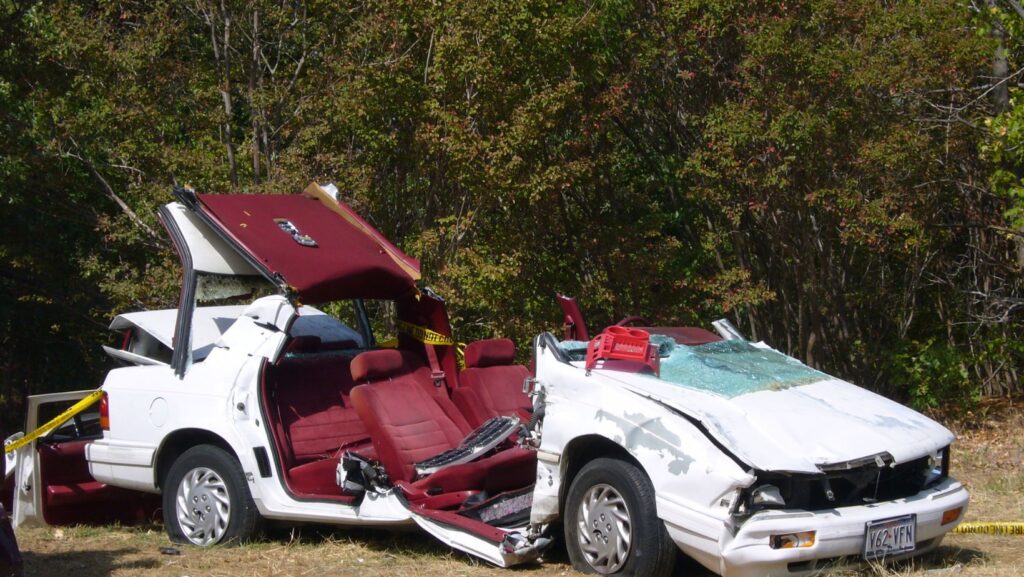
Tacoma moves to its own rhythm—ships in the port, cars crossing the Narrows, drizzle on Pacific Avenue. When a collision happens here, the first few minutes shape everything that follows. Officers will secure the scene and ask for your account; what you say may be used in insurance files and courtrooms. You are not required to fill every pause, guess about causes, or take sides. Stick to what you saw, share your license and registration, and focus on safety while help arrives. If something is unclear, it’s fair to say you don’t know and wait until a medical check rules out hidden injuries.
Before you choose any words that could be read as blame, apology, or speculation, a quick call to a personal injury lawyer in Tacoma can help you keep mistakes off the record. Here, you will find guidance on what car accident victims should never do before police and why a factual approach protects your health and your claim right here in Tacoma today.
Saying “It Was My Fault”
One of the most important things to remember is to avoid admitting fault. Phrases such as “I’m sorry” or “It was my fault” can be misconstrued as admissions of guilt. Your words here matter; they can lead to legal trouble, changing claims and determining who’s at fault. It’s best to stick to factual descriptions without assigning blame to oneself.
Speculating or Saying “I Think”
Guessing about causes or details should be avoided. Saying “I think” or “I believe” can create uncertainty. If unsure about any aspect of the incident, it’s better to simply state that. Speculation can lead to misunderstandings and may affect the credibility of statements. Providing clear, factual information is always preferable.
Saying “I’m Fine” or Discussing Injuries
It’s common to minimize the severity of injuries immediately following an accident, often due to the release of adrenaline. Statements like “I’m fine” can be misleading. Some injuries may not manifest until later, and downplaying them early could impact future medical claims. It’s wiser to seek medical attention and refrain from making definitive statements about one’s health at the scene.
Blaming Others
Blaming other parties involved can escalate tensions and complicate the situation. It’s mighty easy to blame someone, but doing so usually just stirs up trouble. Police officers will gather all the facts to learn exactly who bears responsibility. Stick to the facts and avoid blame; everything runs more smoothly and remains fair.
Agreeing to an Unofficial Deal
Sometimes, other parties may propose settling matters informally without involving insurance. Agreeing to these plans carries a real risk of financial loss or unexpected legal trouble. Without official papers, getting the money you’re owed later can be a real fight. It’s essential to follow proper procedures, ensuring that all details are recorded officially and handled through the correct channels.
Providing Excessive Details
While it’s important to be honest with the authorities after a car accident, providing too many details can be problematic. Stick to the essentials and avoid over-explaining the situation. Information overload often just muddies the waters. When you give short, direct answers, you provide a clear picture, and your statements remain simple and true.
Assuming the Police Report Is Final
Many believe the initial police report is the final word. However, it’s not always conclusive. Go over the report. If anything appears to be incorrect, please let us know what needs correction. Did they miss something? Police officers can always correct their reports. You’ll want to have solid paperwork ready in case you ever face legal or insurance claims.
Discussing Insurance Coverage
Never discuss insurance details at the scene, as it can lead to complications. Mentioning policy limits or coverage specifics may not be necessary at this point. Conversations like these might accidentally harm ongoing deals or requests. It’s advisable to focus on the incident details and leave insurance matters to be handled later with the appropriate parties.
Losing Their Calm
Remaining calm and polite is essential, even when feelings are running high. When you’re angry or overly emotional, speaking clearly with the police becomes difficult. When you stay calm, your conversations tend to remain helpful and professional. Offering respect in your interactions often clears the way for open, honest communication. This consideration then helps guide any difficult circumstance toward a favorable resolution.
Conclusion
After a crash, speaking clearly with the police is crucial. When you skip the vague statements and share only solid facts, you strengthen your position. This also helps ensure your paperwork is completely accurate. If you stay calm and avoid guessing or blaming, you give everyone a clear view. This helps settle things fairly.



